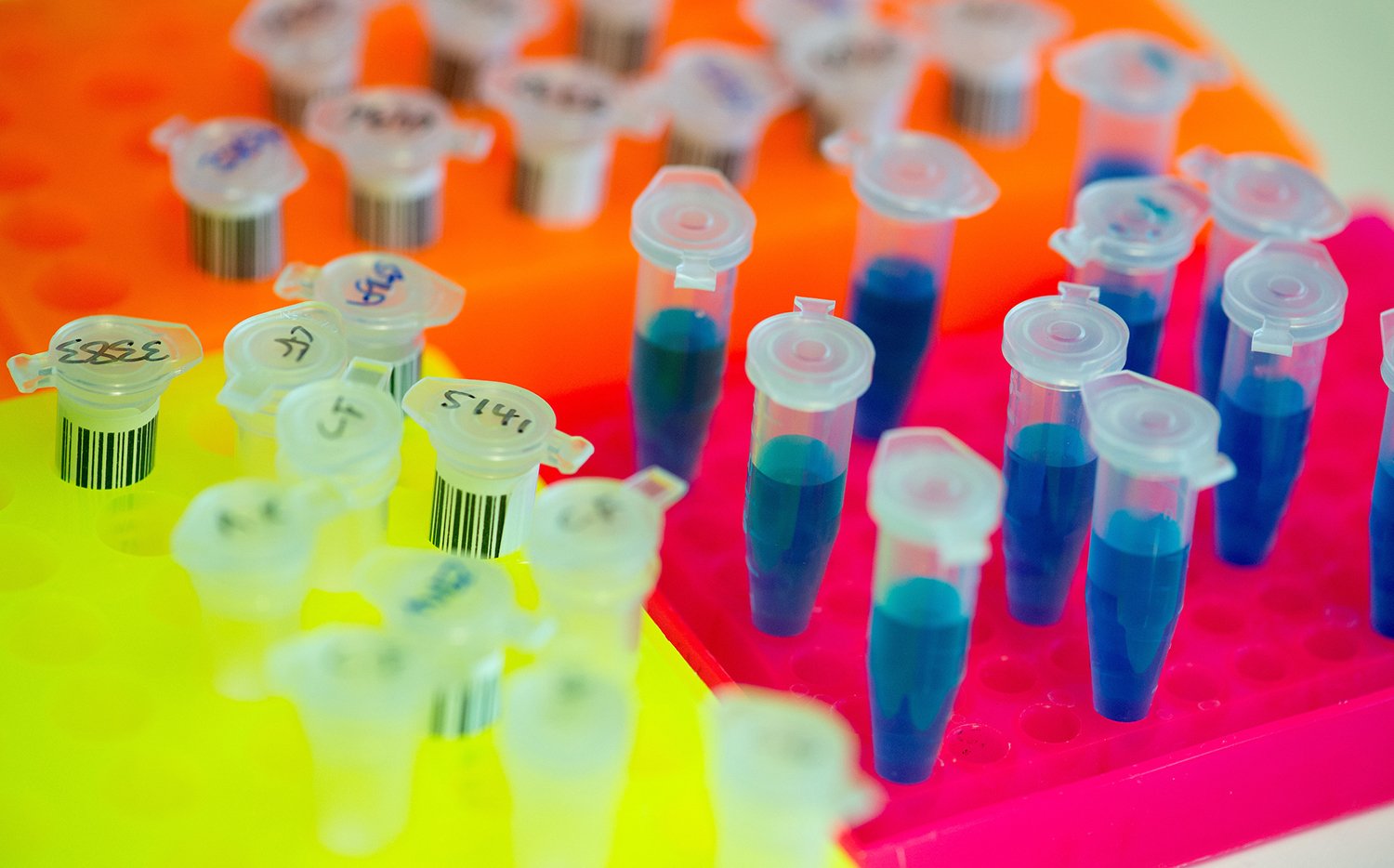Lymphoma and myeloma

What is Lymphoma?
Lymphoma is a type of blood cancer that begins in the lymph glands or other organs of the lymphatic system – it is sometimes referred to as a cancer of the immune system. There are over 60 different types of lymphoma. Lymphoma affects the infection-fighting white blood cells of the immune system, called lymphocytes. Lymphocytes travel around the body in a fluid called lymph, lymph passes throughout the lymphatic system.
The lymphatic system comprises of a network of vessels and glands/nodes spread throughout the body and includes the lymph nodes (lymph glands), spleen, thymus gland and bone marrow. The lymphatic system also conveys nutrients and cells and is responsible for draining fluid and waste products away from tissues, and into the blood stream to be processed. The lymphatic system plays a vital role in the immune response.
Lymphoma facts
- Lymphoma is the 5th most common type of cancer in the UK
- Adults and children can be diagnosed with lymphoma, but most are between the ages of 15 and 24 or over 60 years.
- Over 16,000 people are newly diagnosed with lymphoma in the UK every year.

There are two main types of lymphoma:
- Non-Hodgkin lymphoma (NHL)
- Hodgkin lymphoma (HL)
The two types of lymphoma are classified as different diseases. It’s only possible to tell the difference between Hodgkin lymphoma and non-Hodgkin lymphoma when the cells are looked at under a microscope. HL and NHL are very similar in many ways, but their respective treatments are different. Hodgkin lymphoma is the rarer cancer of the two, and roughly 85% or more of lymphoma cases are non-Hodgkin lymphoma.
In almost all cases of Hodgkin lymphoma, a particular cell called the Reed-Sternberg cell is found when cells from the lymph node are examined during diagnosis. Reed-Sternberg cells are large abnormal lymphocytes which are not usually found in other types of lymphoma. Hence the classification of other types of lymphoma as non-Hodgkin lymphoma.
How does lymphoma develop?
Lymphoma develops when the white blood cells called lymphocytes start to multiply in an abnormal way of do not die when they should. The abnormal lymphocytes begin to build up and collect in the lymphatic system. They often accumulate in the lymph nodes accumulate causing swellings in the neck, armpits or groin. Lymphoma is not necessarily restricted to one part of the body; it can also involve other organs and affect the function of the tissue involved.
Searching for answers
Dr Simon Mitchell: 2020 John Goldman Fellow whose research investigates a type of lymphoma called diffuse large B-cell lymphoma (DLBCL). Simon uses ‘virtual’ patients to find promising new treatments for DLBCL.
“The moments in my research career that stand out are the times when my computer simulations recreate results from experiments, sometimes results I’ve never seen, with such accuracy that they surprise me and others.”

What is myeloma?
Myeloma is a type of blood cancer that arises from a specific type of white blood cell called a plasma cell. Commonly referred to as multiple myeloma because it can occur in multiple places around the body. Myeloma affects the body where bone marrow is normally active in an adult, such as in the bones of the spine, skull, pelvis, the rib cage, long bones of the arms and legs and the areas around the shoulders and hips.
What are plasma cells?
Plasma cells are a type of white blood cell made in the bone marrow, particularly where the bone marrow is actively making new blood cells. Plasma cells are an important part of the immune system; they make proteins called antibodies (also called immunoglobulins), which help fight infection. Myeloma causes plasma cells to produce abnormal antibodies, known as paraproteins, these paraproteins do not function properly and therefore unable to help fight infections.
Unlike many cancers, myeloma does not exist as a lump or tumour. Most of the symptoms and health- related to myeloma are caused by the build-up of abnormal plasma cells in the bone marrow and the presence of the paraprotein in the body.
Myeloma facts
- Myeloma mainly affects people over the age of 65 years and is rare in people under 40.
- In the UK, at any one time, approx 24,000 people are living with myeloma.
- Only 5,900 people are newly diagnosed with myeloma in the UK every year.

How does myeloma develop?
Myeloma develops when DNA is damaged during the development of a plasma cell in the bone marrow. Normally, plasma cell produced is a controlled process. With myeloma, the process is out of control and lots of abnormal (cancerous) plasma cells are made. These are called myeloma cells.
This abnormal myeloma cells then start to multiply and spread within the bone marrow. The abnormal myeloma cells release a large amount of a single type of antibody/immunoglobulin – known as paraprotein or M protein – which has no useful function. The measurement of the presence of paraprotein is often used to diagnose myeloma and monitor disease progression.
Myeloma cells usually make abnormal immunoglobulins and there are 5 different types of immunoglobulins that the cells can produce. The symptoms and health-related problems associated with myeloma result from too few normal functional immunoglobulins and therefore a reduced ability to fight infection. In addition, too many abnormal plasma cells are produced and crowd out the bone marrow, leaving insufficient space for the production of other normal blood cells, white cells, red cells and platelets.
Searching for answers
Dr Sarah Dimeloe, 2018 John Goldman Fellow – Sarah’s research project hopes to to provide key information for the development of much-needed novel therapy for multiple myeloma: the ultimate aim a new treatment strategy.
“Being awarded this fellowship has supported me to establish myself as a researcher. It has provided me with opportunities to interact with other scientists and clinicians working to understand multiple myeloma.”

Facts and statistics quoted on this page are derived from a number of sources which include: The Office of National Statistics (ONS), Cancer Research UK (CRUK), Haematological Malignancy Research Network (HMRN), Blood Cancer UK (BCUK), Lymphoma Action & Myeloma UK.